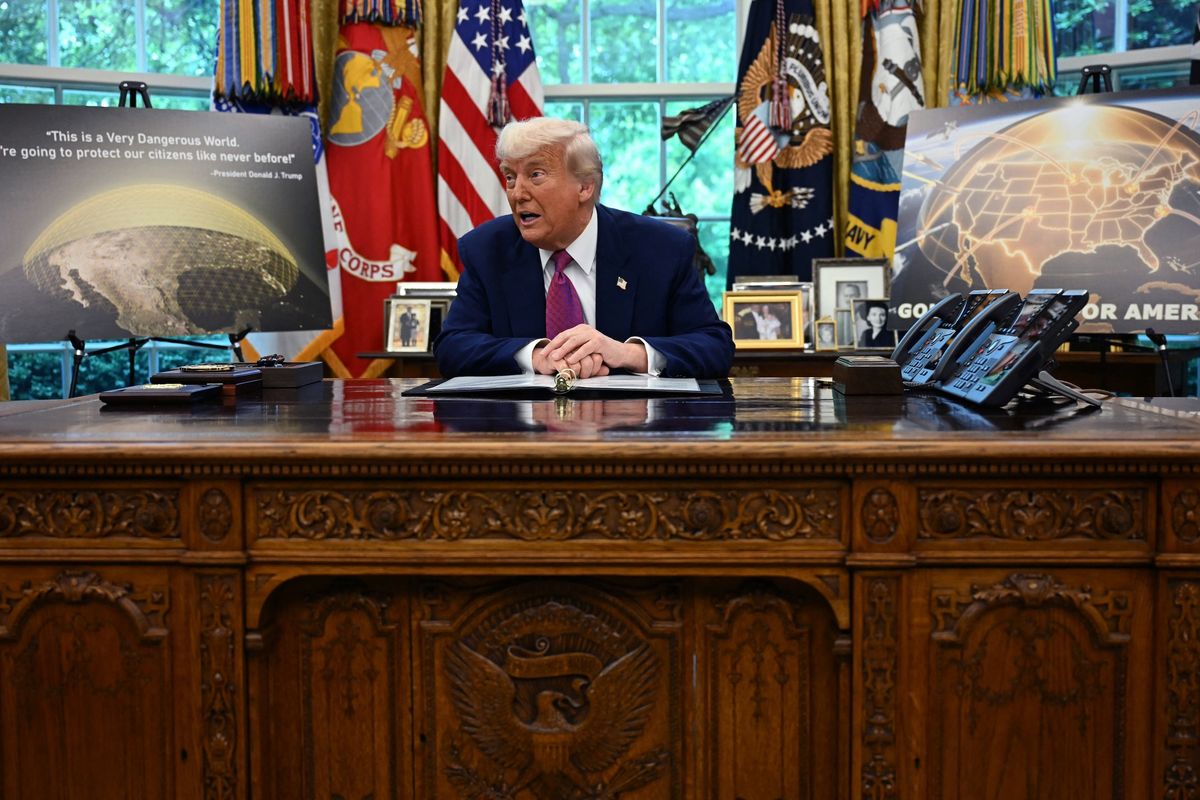When an industry experiences significant performance improvements and simultaneous cost reductions, disruptive innovation follows. The results ripple across sectors and drive the global economy forward. Steam power, automobiles, and personal computers are classic cases. Today, we are witnessing Moore’s Law – a term referring to the observation that the number of transistors in an integrated circuit roughly doubles every two years – at work in rocketry, driving down the cost per kilogram in space launch and promising astounding new possibilities in space operations. This development has significant economic and national security implications.
Elon Musk’s SpaceX has single-handedly forced the market price for launch services down by more than half, simply by approaching rocket production like a competitive manufacturing business. The price of flights to low-Earth orbit have dropped from over $300 million to less than $100 million. SpaceX’s reuse of first-stage boosters, payload fairings and other rocket components promises to cut this by another 40 percent or more. Commercial launches could easily fall below $50 million.
Musk has noted that the actual consumables of space launch – fuel and oxidizer – run for only a few hundred thousand dollars per flight. Getting space launch pricing down to this marginal cost is also the vision of advocates of ultra low-cost access to space. The goal is to foster the development of fully reusable launch vehicles that operate more like traditional commercial aircraft – fuel, fly, refuel, and fly again – perhaps several times a day and from relatively mundane launch facilities. Routine and affordable access enables cheap redundancy and the nearly instantaneous replacement of degraded space assets, major advantages in today’s threatening space environment. It also promises the suborbital transportation of unmanned aerial vehicles, troops, and supplies to any point on the globe within an hour or two.
SpaceX’s primary competitor, United Launch Alliance, has aggressively reacted to Musk’s challenge. ULA’s Tory Bruno shook up the staid military-industrial-complex model as soon as he took control of the joint venture between Boeing and Lockheed. He streamlined ULA’s operations and slashed costs while maintaining the firm’s perfect launch record. More importantly, Bruno also embraced the visionary approach to innovation that has driven great entrepreneurs like Apple founder Steve Jobs and Elon Musk. Bruno imagines thousands of people living and working in a sustainable space economy as the way forward for America. He’s absolutely right about that. Space is the next economic frontier as well as the strategic high ground of the 21st century. We can’t own one without the other any more than the U.S. cavalry could have held the American West without trappers, farmers, ranchers, miners and railroads. It was economic activity and commercial infrastructure that won the West.
The past offers us another important lesson for this moment. The global PC industry was established almost exclusively by American commercial and governmental research and development. Yet the economic and trade policies of the ‘80s and ‘90s encouraged nominally American technology firms to move all their manufacturing offshore. Much of the economic return and competitive advantage from this American industry was swiftly transferred to other nations. Governmental attempts to legislate control over high-end electronic components have been fruitless. Worse, our high-tech military is now dangerously dependent on a vulnerable East Asian supply chain. That mistake must not be repeated in space.
Rep. Jim Bridenstine (R-OK) understands this lesson and he shares Bruno’s economic vision of a sustainable space economy. Bridenstine sees clearly, where others have not, that dominance in space is not simply about short-term supremacy in launch capacity or other metrics of a particular vehicle. While these advantages are important, long-term ascendency over a new territory does not come from missions of exploration or building isolated forts. Permanent ascendency comes from the establishment of a diversified and sustainable economic presence in that territory. Bridenstine’s American Space Renaissance Act aims to “permanently secure the United States as the preeminent spacefaring nation” through an integrated military-civilian-commercial approach.
We are actually very well poised to do this. America will soon have the world’s most powerful traditional rocket – the Space Launch System – as well as a growing stable of commercial providers that doesn’t end with ULA and SpaceX. Jeff Bezos’ ambitious New Glenn rocket is well underway, with a large manufacturing plant being built just outside the gates of the Kennedy Space Center. Bezos’ firm, Blue Origin, is also the leading candidate to provide new domestic engines for ULA’s rocket fleet. Richard Branson’s Virgin Orbit promises to dramatically reduce costs and increase flexibility for small payloads using a 747 to air launch small payloads on a two-stage RP-1/LOX rocket.
An additional tier of firms is poised to take advantage of all this new launch capacity with huge constellations of communications and remote-imaging satellites providing global Internet access and near real-time observation of all points on Earth. At least two firms, Bigelow and Axiom, are planning manned commercial space stations. Resource extraction and space manufacturing firms are raising funds as well.
It is important to note that the UK-based Virgin established its several space operations in the U.S. and in the form of American corporations, as has New Zealand’s RocketLab. The new space frontier is America’s to lose. If NASA and DOD work together in support of a U.S.-dominated commercial space market, the competitive advantage we gain will assure American economic and military ascendency throughout the 21st century.








